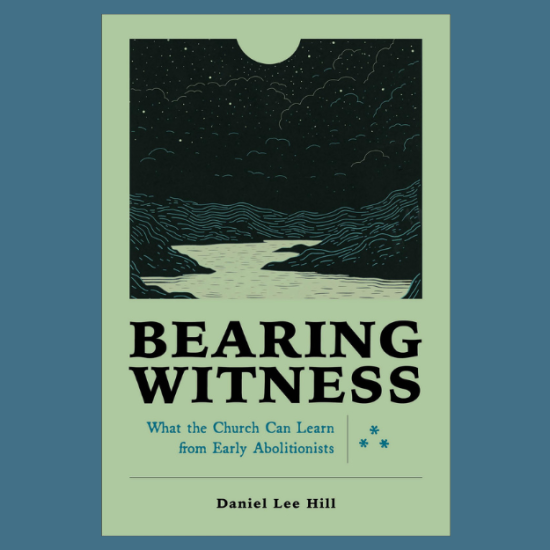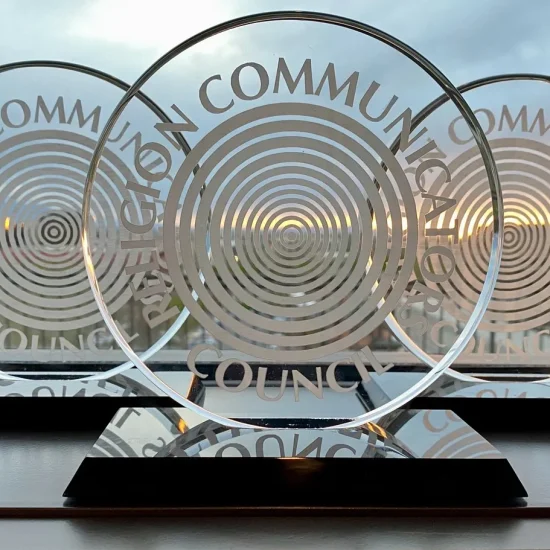
The COVID-19 pandemic has upended many parts of life that don’t usually make the headlines like the bigger impacts of canceled events or deaths. And we’re not just thinking about the great toilet paper shortage of 2020, which we’re glad didn’t continue to roll on.
For instance, it turns out breath mint and gum sales dropped dramatically because who needs fresh minty breath when you’re not having meetings (although, smelling your own breath in a mask should inspire more peppermint popping). Additionally, while gift boxes of chocolate decreased, sales of individual chocolate bars soared as people admitted to eating more candy. So, basically we’re giving out fewer gifts but practicing more self-care from Dr. Hershey and Therapist Baby Ruth.
Another unexpected impact hit the book industry. More specifically, it hit authors. We have friends who’ve published books in 2020 or 2021 who couldn’t do all the normal author stuff like tours, signings, etc. And we’ve interviewed authors during this time who talk about feeling disconnected from readers, which is a letdown after spending months or years writing a book and then having it land in the middle of a global shutdown.
On top of that, the pandemic closed many bookstores and made people more willing to just shop online. This hurt some small independent bookstores. And the online boom can help celebrity authors and older books more because of algorithms at large retailers’ sites.
To make matters worse, now there are even some supply chain issues impacting book printing and distribution. We can live without toilet paper, but we demand President Biden issue an executive order, mobilize the National Guard, or do whatever it takes to get the presses operating 24/7 until Christmas!

So, as two unrepentant bibliophiles, we’re going to honor some of our favorite books of 2021 in this issue of A Public Witness. Here’s the table of contents: 1. Five books featured on Dangerous Dogma, 2. Five books recommended by Brian (that haven’t yet led to podcast episodes), 3. Five books recommended by Beau, and 4. A heartwarming conclusion. We hope you find a book on the list that’s perfect as a Christmas gift or that you can grab for yourself to read while enjoying another chocolate bar.
5 Books Featured on Dangerous Dogma
1. Pray With Our Feet: Pursuing Justice and Healing on the Streets by Lindsey Krinks (Brazos Press). This beautiful book by a street chaplain and social justice activist in Nashville, Tennessee, leads readers on a journey of a maturing faith amid outreach to unhoused persons and fights against systemic injustices. We love this book so much we not only featured Krinks on episode 2 but also held an online book club event to encourage more people to read the book and join us in discussing it. Learn more about the book in a review written by Beau.
2. Jesus and John Wayne: How White Evangelicals Corrupted a Faith and Fractured a Nation by Kristin Kobes Du Mez (Liveright). While this book by a historian at Calvin University first came out in 2020, we celebrated the launch of the paperback edition by dropping her interview in episode 3 on paperback release day. This “surprise bestseller” explores issues of religion and masculinity that help explain the rise of Donald Trump and his lasting support among White evangelicals. Du Mez brings together various pieces from the past and present to add new understanding to our contemporary world of faith and politics. And it’s not only a smart read but a fun one.
3. A More Perfect Union: A New Vision for Building the Beloved Community by Adam Russell Taylor (Broadleaf Books). In an age of cynical politics and blind partisanship, the president of Sojourners calls for Christians to model a better way with better stories about who we are as a nation. Finalized amid the start of the COVID-19 pandemic and protests against racial injustices, this fresh book offers a glimpse into the politics we need today. Hear more from Taylor in episode 19, and read an excerpt from the book that we published at A Public Witness back in September.

4. If God Still Breathes, Why Can’t I? Black Lives Matter and Biblical Authority by Angela N. Parker (Eerdmans). Biblical inerrancy ultimately comes down to authority. Not the Bible’s authority, but the authority of the one who gets to interpret the texts. That’s why Parker, an assistant professor of New Testament and Greek at Mercer University’s McAfee School of Theology, challenges the idea of inerrancy and the White Supremacist authoritarian orientation that too often wields it. This book, and her conversation in episode 20, will help you understand how race, gender, and other oft-ignored issues impact the ways we all read the Bible.
5. Bad Faith: Race and the Rise of the Religious Right by Randall Balmer (Eerdmans). There’s a popular myth about the origins of the conservative Christian movement that transformed our politics over the last four decades. So, we should expect that a Dartmouth historian of religion wouldn’t allow that story to go unchallenged. If you think the Religious Right formed to fight abortion, then you need to read this book. And you should start by listening to episode 25. As the book and episode make clear, this isn’t just a story about the past; it impacts our world of faith and politics today.
5 Books Recommended by Brian
1. Apostles of Change: Latino Radical Politics, Church Occupations, and the Fight to Save the Barrio by Felipe Hinojosa (University of Texas Press). In 1969 and 1970, Latino activists disrupted and occupied church and seminary buildings to call attention to inequities and injustices. Hinojosa, an associate professor of history at Texas A&M University, tells the stories of such occupations in four cities — Chicago, Los Angeles, New York, and Houston — that involved Catholic, Methodist, and Presbyterian spaces. And he unpacks the impact and legacy of these little-known moments of social activism that raise important questions today about what it means to be the church.
2. Christians Against Christianity: How Right-Wing Evangelicals Are Destroying Our Nation and Our Faith by Obery M. Hendricks (Beacon Press). In this book, a biblical scholar picks up the prophetic mantle to note where many U.S. Christians have rejected the teachings and way of Jesus. His chapter on the unholy embrace of the NRA by right-wing evangelicals is alone worth the purchase of the book, as he traces the historical transformation that led to many Christians joining the death cult that continues to offer blood sacrifices to our semiautomatic idols. Read more about this book in my review published by Church & State magazine.
3. Decoding the Digital Church: Evangelical Storytelling and the Election of Donald J. Trump by Stephanie A. Martin (University of Alabama Press). Long before most of us started attending church virtually in 2020, Martin was “going to church in my pajamas” to study the sermons of White evangelical megachurch pastors. An associate professor of corporate communication and public affairs at Southern Methodist University, her analysis of sermons over several years leading up to the election of Donald Trump offers important insights into how we got to where we are religiously and politically. This book reminds us that words matter, especially those about the Word.

4. The Backwater Sermons: Poems by Jay Hulme (Canterbury Press Norwich). This British poet came to Christianity just before the pandemic hit, and thus has mostly experienced Christian life in this unusual time of isolation and virtual life. Out of that experience comes this collection of poems, many of which powerfully reflect on death in this pandemic and questioning faith. But the poems that I’ll especially come back to are those when he makes a biblical character the subject, like Joseph (father of Jesus) or a Roman soldier at the cross. Hulme can preach a whole sermon in just a few words.
5. Reparations: A Christian Call for Repentance and Repair by Duke L. Kwon & Gregory Thompson (Brazos Press). Reparations is one of the least popular political ideas in the United States today. But the concept of reparations has a rich biblical history. Two ministers — one Korean American and one White — in the historically-conservative evangelical Presbyterian Church of America take up the case for why Christians should lead the way in supporting reparations for slavery.
Get cutting-edge analysis and commentary like this in your inbox every week by subscribing today!
5 Books Recommended by Beau
1. The Nones: Where They Came From, Who They Are, and Where They Are Going by Ryan P. Burge (Fortress Press). The biggest shift in contemporary American Christianity is the rise of “the nones.” No pastor, ministry leader, or practicing Christian will be able to navigate the church of the near future without understanding this group. Unfortunately, this group is often misunderstood as anti-religious or fervently atheistic rather than either agnostic or indifferent. As the rare social scientist and Christian pastor, Burge is the ideal teacher to explain this phenomenon. His book is required reading by anyone wanting to claim the mantle of Christian leadership.
2. The Lost Art of Dying: Reviving Forgotten Wisdom by Lydia S. Dugdale (HarperOne). We’re all going to die. Most people (and Christians) deny that truth. There’s a whole genre of books aimed at convincing us to face this reality. As a pastor, part of my vocation is making sense of death. This means I’m always on the look out for Christian writers talking about what it means to follow Jesus and trust in God’s resurrection as a mortal being. Like other books, Dugdale mines the wisdom of the past but she writes with the unique authority of a medical doctor who knows dying as both a biological process and existential crisis. (Including this on the list is a bit of a cheat. The original book came out in 2020, but the paperback was released in 2021, which is when I read it.)
3. What is God Like? By Rachel Held Evans and Matthew Paul Turner (Convergent Books). Finding good Christian books for children is ridiculously hard. A lot of what’s out there is terribly written, teaches horrendous theology, or both. This volume is the exception, which makes it a valuable addition to every child’s library. After buying it for my own son, I then gifted a copy to my goddaughter for her second birthday. Her parents loved it so much that they bought a copy for their own godchild. And, of course, one way of honoring the life and work of Held Evans is by continuing to pass on her insights and wisdoms to the next generation of Christians.

4. Liberating Love: 365 Loves Notes from God by Sandhya Rani Jha (Chalice Press). This book is technically another “cheat,” as it was released in 2020 BUT using it as a daily devotional for a year involved reading it throughout much of 2021. The stereotype of the progressive Christian is they care more about social action than spiritual discipline. Liberating Love subverts that caricature by showing how the depth of one’s interior life can inspire followers of Jesus to be radical agents for change. Written by an activist and pastor, you’ll become convinced (again) that God loves you and everyone else, which is why nobody should stay silent in the face of injustice.
5. Spiritual Entrepreneurs: Florida’s Faith-Based Prisons and the Carceral State by Brad Stoddard (University of North Carolina Press). The most academic book on my list, Stoddard’s study touches on a number of issues that fascinate me: the separation of church and state, the role of religious actors within government bureaucracies, and over-incarceration in American society. One proposed solution to the latter implemented in Florida is letting religious groups (almost all of whom are conservative Christians) run prisons on the premise that character reform will reduce recidivism. One take away of this case study is that a political group supposedly distrustful of government power sees the state’s authority as a tool for accomplishing sectarian religious ends.
Help sustain the ministry of Word&Way by subscribing to A Public Witness!
Why Christians Should Read
With so many distractions around us, it can be hard turning off cable news or putting down our devices to open a book. Yet, there are at least two reasons Christians should prioritize reading about the faith they confess.
First, despite the individualism of American culture, the practice of Christianity remains a deeply communal affair. Following Jesus does not take place in a vacuum. None of us are churches unto ourselves. Reading is an unappreciated way of practicing accountability to the larger Body of Christ. By digesting a book, you allow the ideas of other Christians to both inform and refine your own. There is no obligation to agree, but reading does require vulnerability. To read is to recognize discipleship involves a constant process of learning and there are wise guides out there ready to teach us.
Second, and relatedly, reading provides access to great Christian thinkers, past and present. Our digital age makes almost any author instantly accessible to us. Libraries can obtain books from far and wide. There are few limits on information. When one of us (Beau) served in congregational ministry, he used to tell the church: “I recommend so many books because there are Christians much smarter than me thinking about the questions you’re asking.”

(Tom Hermans/Unsplash)
During Advent, we prepare for the arrival of God in Jesus Christ. Christians proclaim that this moment is world changing. On a communal level, God is acting for the liberation of the world. To each individual, the chance to know God in a new way is offered. If Jesus is as important as we preach, if giving our lives over to him is truly consequential, if following him is actually a way of life, then shouldn’t we devote ourselves to leading? Shouldn’t we be seeking out edification in the witness of the saints and the works of contemporary Christian authors inviting us into deeper encounters and understandings of the God who is love?
We don’t expect you to read all 15 of these books, but we hope you might decide to explore one or two. Even better, we pray that reading more and reading better about the Christian life will be your New Year’s resolution for 2022.
As a public witness,
Brian Kaylor & Beau Underwood






